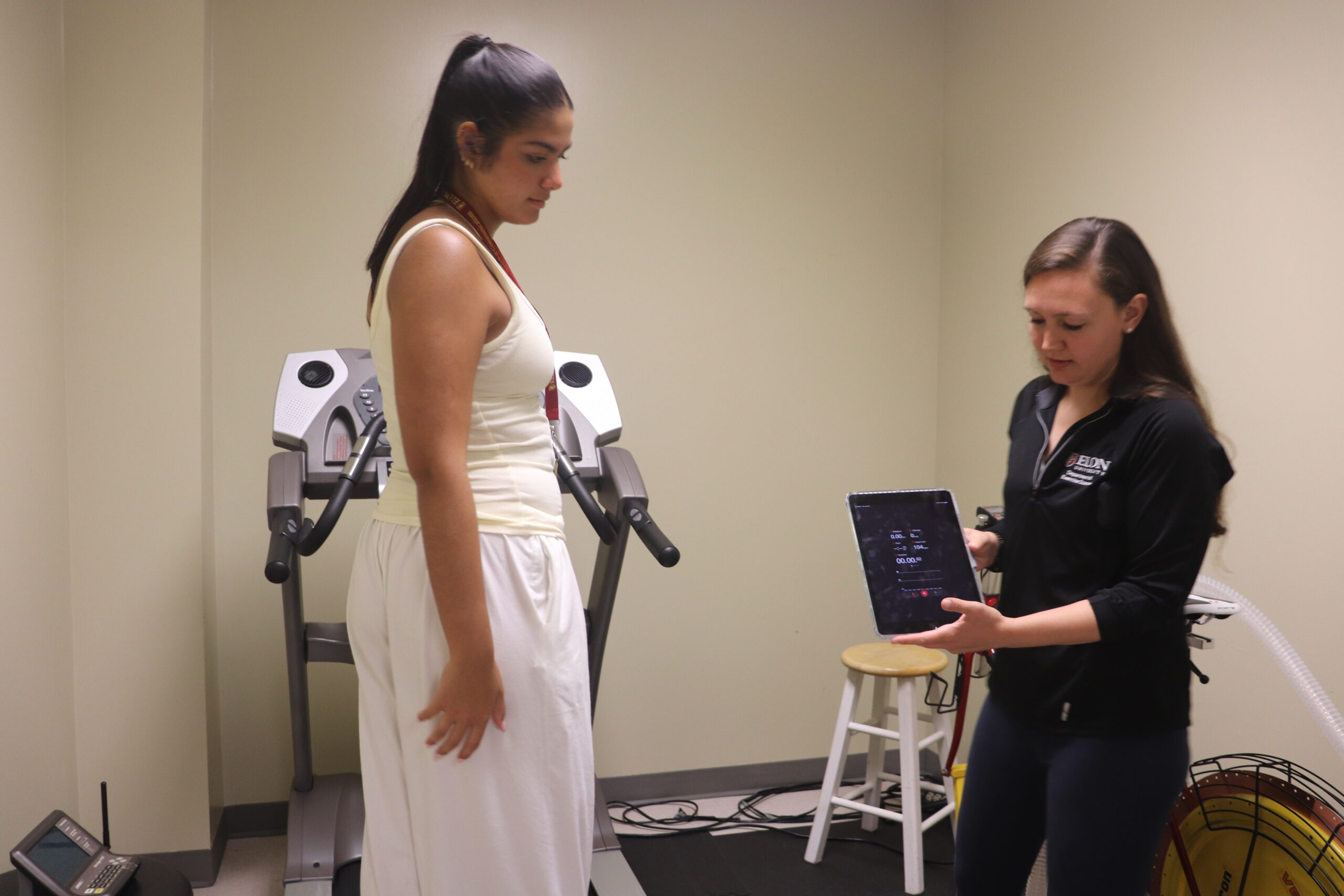
Researchers at Elon University are conducting experiments to study whether the placebo effect and expectancy bias improve individuals’ brain functions after exercising.
The placebo effect explains when an individual experiences positive outcomes simply from the belief of that positive outcome rather than the effect of a treatment. Similarly, expectancy bias occurs when someone’s expectations influence the result of the therapy either positively or negatively.
After participating in research on kinesiology, neuroscience and exercise at the University of North Carolina Chapel Hill and Michigan State University, professor Madison Chandler came to Elon University in July 2023.
Since then, she has worked in the department of exercise science and studies the effects of exercise on the brain.
Chandler and Asia Green, a rising senior, are working over the summer to examine the role expectations play in exercise.
“If you are familiar with how exercise can improve your brain function, could we help you get even more benefits if you’re aware of what you know might happen?” Chandler said.
Together, they expect to test two groups of people with varying fitness levels, whether they exercise frequently or not, and include one group that is told how good exercise is for their brain and one that isn’t.
“So we’re going to just use treadmill walking, and we’ll be able to get people to self-select a brisk walking speed,” Chandler said. “Then what we do is we calculate the percent of their heart rate that would be keeping them in that moderate range.”
Chandler said she wants the pace and inclination of the walk to be just enough to raise participants’ heart rates rather than cause them to breathe vigorously.
“We want them to be breathing hard as if you’re late to class, like walking kind of briskly,” Chandler said.
During the study, Chandler uses a heart sensor which can be connected to an iPad, to see whether she needs to increase the speed or incline on the treadmill. Once the walk ends, Chandler tests the subjects’ cognition using software to determine their reaction time. Using this, she monitors whether subjects who previously knew about the positive effects of aerobic exercise did better than those who didn’t.
Green said in addition to helping Chandler during the experiments, she often just works to spread the word about the study, even taking advantage of her role as a senior resident adviser.
“It’s like, who is this crazy girl to have elevator conversations, to speak in my RA meetings, because I’m an SRA on campus?” Green said. “But speaking in those meetings down to the grocery store and even running into the gym and kind of letting people know what my study is about and even walking the sidewalks at times.”


